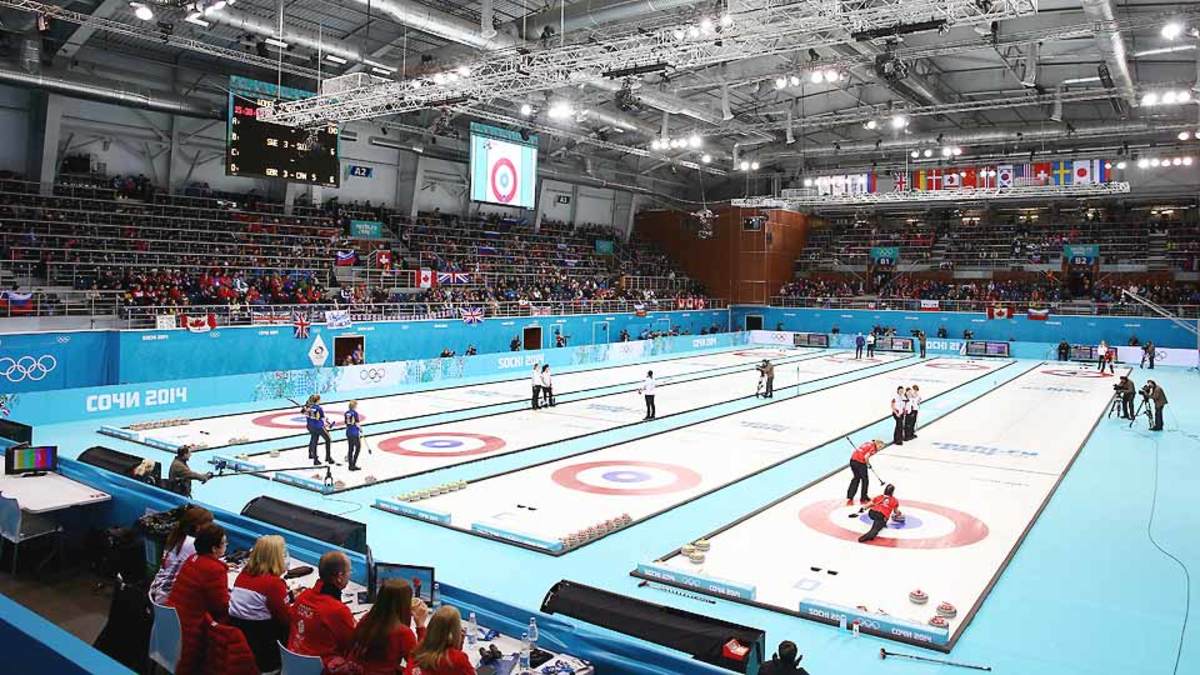The Olympics: The Disneyland of sports
The Ice Cube Curling Center in Sochi, like Big Macs in the Main Press Center, is available to stay or to go. It is a transportable building, easier to ship than Albert Pujols’ contract, making it the rare sports arena that moves faster than the game that is played in it. Russia can send the Ice Cube all around the country, so people all over the country can know the thrill of having a 3,000-seat curling venue in their town.
Some would find that silly. But all Olympic venues should all be moveable. I see no reason why Pyeongchang, South Korea, should build its own speed skating rink for the 2018 Olympics when the one in Sochi is a mere 4,500 miles away, ready to be packed up and shipped. What happens in Vegas may stay in Vegas, but what happens in Sochi is basically going to happen again in Pyeongchang, so let’s set up the same shop there, from spectator seating to the concessions. In four years, those cabbage pies at the Iceberg Skating Palace will probably taste exactly the same as they did last week.
Pyeongchang organizers seem to realize this. The 50,000-seat stadium that will host their opening and closing ceremonies will be a temporary venue. One hockey rink has been designed to be dismantled and reassembled in another city, a trick that would have appealed immensely to past owners of the Phoenix Coyotes. Imagine seeing a hockey arena on wheels on the highway in front of you with a WIDE LOAD sign on the back and Swedes still scoring goals inside.
The Olympics are a sports Disneyland, except that visitors watch other people go on the rides. You can spend a day at an Olympics, bouncing from one competition to another, and forget who is hosting until you look at the currency. If you visit Russia hoping to understand the complex history of government-citizen relations, admire its cultural treasures and sense the national mood, you would probably not start at the ski-jumping venue. Going to the Olympics is like travelling to a country inside another country,
But the farther away you are, the more you see. To television viewers, the Olympics are a window into a nation, which is why hosts view them as a commercial aired worldwide. Signs all over Sochi proclaimed Russia as “Hot. Cool. Yours.” The whimsical message was thoroughly planned. Russian president Vladimir Putin used the Olympics to show he is a benevolent and beloved leader, which worked incredibly well except that nobody believed it.
South Korea has different goals. The theme for Pyeongchang is “New Horizons.” The 1988 Summer Olympics in Seoul unveiled a burgeoning democracy. The 2018 Games are supposed to showcase an economic power and technological hub and establish an all-year resort area.
Like the Koreans, Russia wanted to flash its financial might, but the Russians tried a little too hard. They spent $51 billion on the Olympics, including gratuities. South Korea plans to spend a mere $9 billion, including high-speed rail construction. But part of having money is knowing how to spend it, and the South Koreans hope their Olympics feel like a high-tech, high-efficiency operation.
South Korea would also love to get North Korean athletes into the Olympics and keep their nation’s weapons out, and those two stories will probably dominate the pre-games coverage. North Korea boycotted the Seoul Olympics. South Korean officials in Sochi said they hope North Koreans compete in Pyeongchang, but that decision will be up to dictator Kim Jong-un and his assistant, Dennis Rodman. Kim could also threaten to blow up the whole games, and that security concern will loom over the Olympics. But the North Korean threat always looms over South Korea.
In the meantime, South Korea is selling New Horizons. If you walked through to Olympic Park in Sochi, then over a footbridge, you found Korea House, which promised the most compact Winter Games in history. The mountain cluster of venues is just 20 miles from the coastal cluster. In Pyeongchang, more than ever before, the Winter Olympics will be a small world after all.





